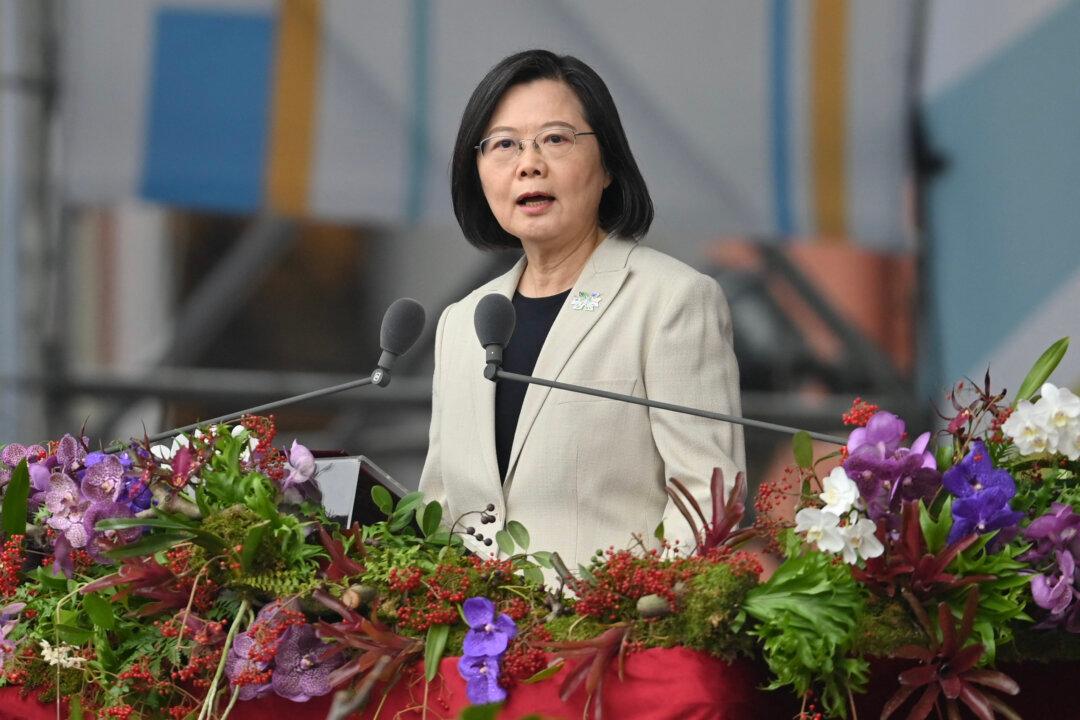Taiwan’s President Tsai Ing-wen has sought to bolster military exchanges with the United States in the face of the Chinese Communist Party’s (CCP) continued provocations against the self-ruled island.
“Going forward, Taiwan will step up cooperation with the United States and other democratic partners to confront such global challenges as authoritarian expansionism and climate change,” Tsai said on Tuesday.





